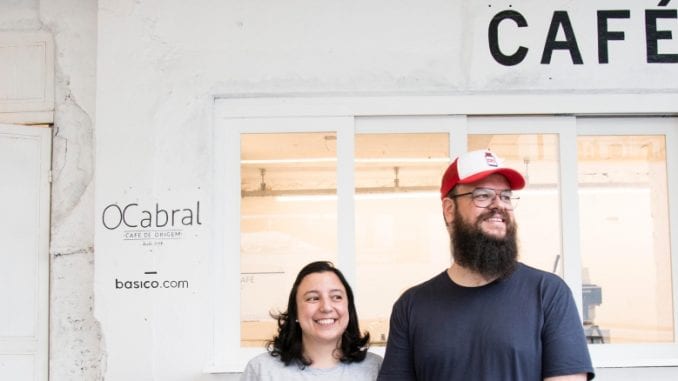
The founders of OCabral Café in São Paulo, Brazil, talk about how a passion for coffee led them to leave their careers in music and fashion behind.
BY PAULO PEDROSO
SPECIAL TO BARISTA MAGAZINE ONLINE
Photos courtesy of OCabral
A few years before launching the coffee brand OCabral in 2015, Ana Oliveira and Daniel Tavares, a couple from Southern Brazil, drew up a life-changing plan based on their habit of drinking fine coffees at home. Even before coming to live in São Paulo in 2011, they began traveling to Brazilian coffee farms, trying to figure out a way to make their dream come true.
At first, the plan was to develop a kind of curatorship, coming from their travels to Brazilian farms, to promote their stories and create a virtual store offering their beans. However, this became a lifestyle beyond coffee, and soon they were consuming food and even clothing based on the same criteria of choice.
Paulo Pedroso: Do you remember when you both decided to pursue a specialty-coffee business and leave your careers behind?
Ana Oliveira: The more we dived into the coffee universe, the more we were sure that we could do a great job, especially showing the origin of coffee and the way a bean is handled until reaching your cup of coffee. The turning point was when we went to Barra do Choça, near Vitória da Conquista in Bahia, and there we met the producer Eufásio Lima. He is respected in the region because he has become an example of resilience in the handling of specialty coffee in a place that suffers from droughts and, despite all adversities, shows bravery in producing great coffee. We left his farm really excited. This contact confirmed everything we needed. He was the first producer we worked with; simplicity and sophistication in methods of cultivation and management of coffee are his day-to-day work.
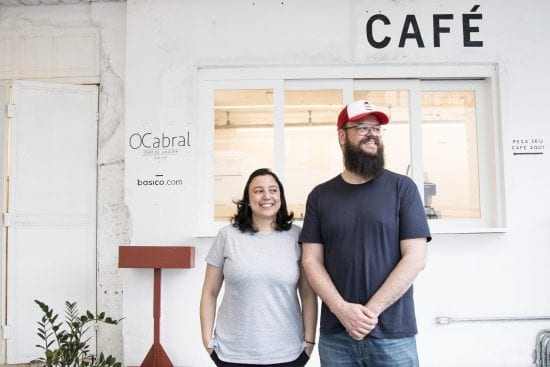
What was your experience with specialty coffee before this?
Daniel Tavares: We started as enthusiasts. We came in contact with the specialty-coffee business in 2010, when we lived in Vitória. There, we met a man named Vagner Benezath, who was opening his café, Kaffa. We became friends and he was the one who introduced us to this world. After that, we started to consume more coffee and also frequent some workshops. But, when we decided to do it for real, we did courses at Trentino Cafés Especiais in Vitória, Espírito Santo, and also Sofá Café and Isso é Café, both in São Paulo.
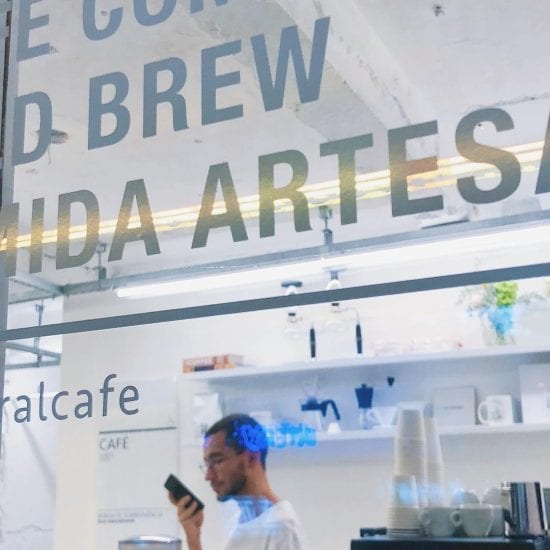
Tell us a little bit about other inspiring characters you’ve met on your way.
Ana Oliveira: Vagner from Kaffa continues to be our mentor even today, along with being a friend who taught us to value the connection within the coffee production chain. I would also like to mention Carlinhos Altoé, a producer in Espírito Santo, an icon of coffee in the region of Vale do Caxixe. His story starts from past generations of coffee cultivation and he became an expert in roasting his own beans, doing it with excellence and love. In addition, he is a charismatic figure who emanates enthusiasm and joy.
How do your customers’ preferences influence your coffee-buying decisions? Do you buy green beans and order a particular roasting style?
Ana Oliveira: We understand that it’s important to have a menu with some coffees profiled to create a comforting beverage and reach most people; however, we buy our beans through our connections and discoveries. Also, we consider our own feelings to create a blend with range. We want to create a variety of blends, from the most balanced to the most complex, in order to really present the sensorial experience that these specialty coffees have to offer.
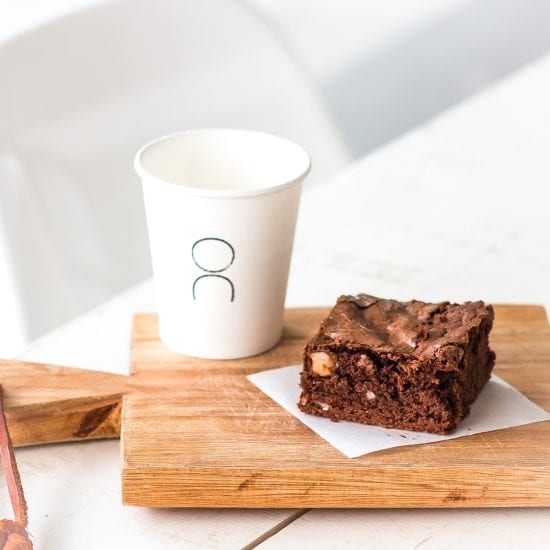
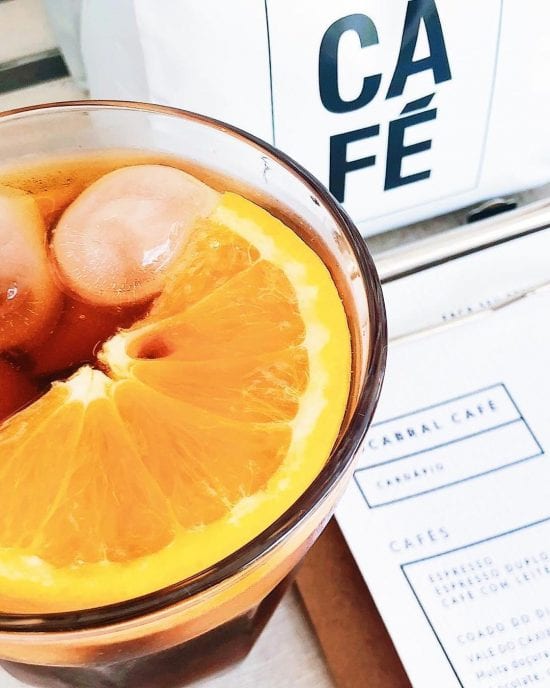
In the beginning, our job was just to buy green coffee for ourselves. Now there’s a demand coming from others and we’ve established partnerships with several roasters. We always keep an eye on the whole chain, which allows us to develop special editions.
I see that you offer artisanal foods—how do you select your providers?
Daniel Tavares: It’s simple: We serve here what we consume at home, and we know each producer personally. We are gauchos (people from Southern Brazil), and admire the diversity of products from all regions, and on this coffee adventure, we have met a lot of cool producers visiting small fairs and bought many of their products to share with our customers.
Do you think the ideals of your business are communicated clearly in a neighborhood focused on the luxury market and brand culture?
Daniel Tavares: It is a challenge to talk about conscious consumption in a consumer culture environment, but we believe this isn’t just a trend; today, people are receptive when you offer traceability, and there is a strong movement of people around here who want to have this lifestyle.
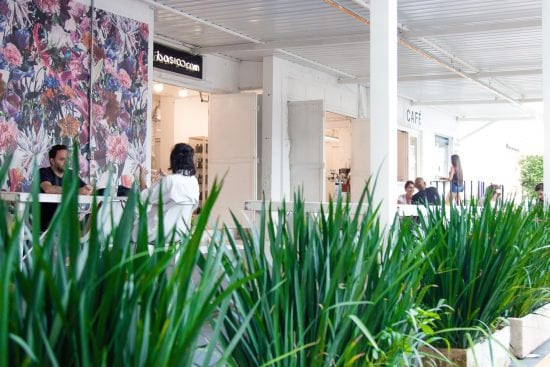
OCabral is attached to a clothing store, Básico.com, and we are aligned on concepts based on simplicity and the appreciation of origin and, of course, quality products. Curiously, we met the owners, Daniel Cunha and Dedé Bevilaqua, at a fair of sustainable products. They introduced themselves as cold-brew lovers and we as consumers of their brand. It was amazing because this meeting was the starting point of our decision to settle down in a fixed place and kick off a partnership with them last year.
Can you talk about the name of your business—where does OCabral come from? Cabral is the name of the Portuguese explorer who colonized Brazil, right?
Ana Oliveira: Yes, the name came from this idea of discovery. When we began changing our business, it happened as a reconnection with our origin. The visual identity was a natural consequence of this view: clean, simple, and at the same time sophisticated.
So we created a visual brand to represent this universe, with labels following the same style and with quality assurance on what goes into everything. In fact, we’ve been careful to do everything very lightly, from language to visual identity. But for us, it’s quite natural due to our personal style.
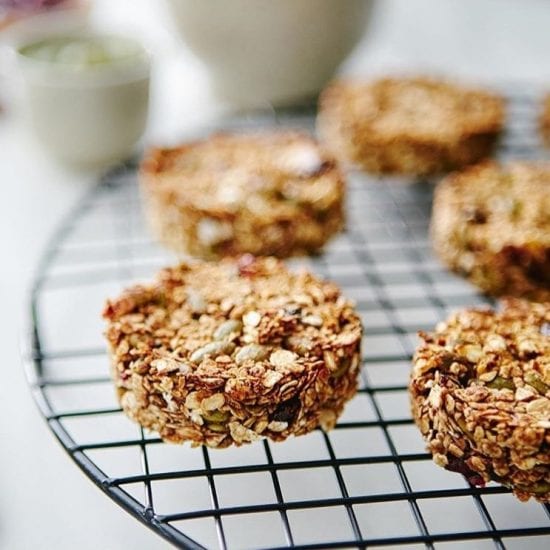
How do you see the future of your business?
Daniel Tavares: This business has taken over our lives—it’s a passion, but we are conscious that only being a year into it, we still have much to do to keep improving the quality. We are always thinking of the next steps, like increasing the value of the production chain and handicrafts, prioritizing principles before prices.
In terms of our return on investment, I consider our rate of profit quite fair, but small if you think of reaching a financial sustainability in a short time. We will keep maintaining the concept of quality. Partnerships like the one we have today, with aligned brands, are important to keep our financial health, but for us, that is only the beginning.
This interview was edited for clarity.

ABOUT THE AUTHOR
Paulo Pedroso is a Brazilian entrepreneur who is a regular contributor to several newspapers and magazines. He always keeps an eye on the increasing reach of specialty-coffee culture and the trends and life stories that emerge from this phenomenon.

